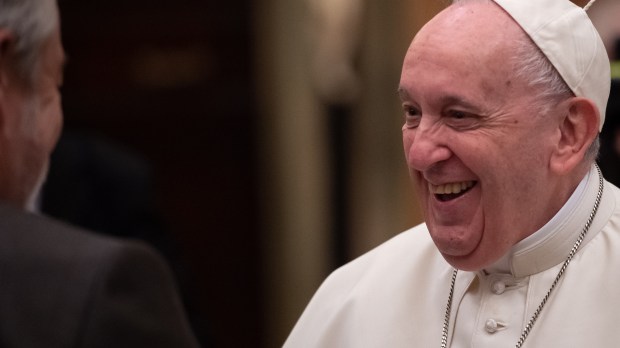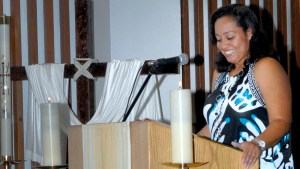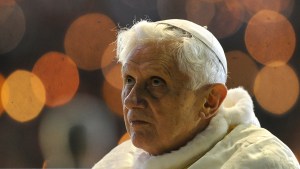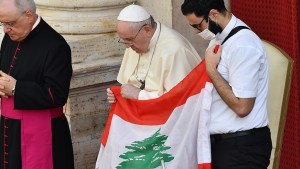Nine years ago, Cardinal Jorge Mario Bergoglio was elected to the Throne of Peter on March 13, 2013. I.MEDIA traces the course of this ninth year of his pontificate, which has come to a close tragically with the outbreak of war in Ukraine.
February 25, 2022: the Pope visits the Russian Embassy to the Holy See
A little over 24 hours after the start of the Russian offensive in Ukraine, Pope Francis went to the Russian embassy to the Holy See to “show his concern for the war.” This was an unprecedented gesture — the diplomats go to the pope, not the pope to the diplomats — which adds to the many messages and actions of the Holy See in favor of peace in the region.
On the diplomatic front, he made it known that there is still time for dialogue to silence the noise of arms, with the Holy See offering to facilitate mediation. On the humanitarian front, he sent two of his cardinals to show his support for the hundreds of thousands of Ukrainian refugees. On the spiritual level, he dedicated two days of worldwide prayer for peace in Ukraine – on January 26, less than a month before the Russian offensive, and on March 2.
February 25: the Pope cancels his visit to Florence for health reasons
Due to knee pain, Pope Francis declined to attend the Meeting of Bishops and Mayors of the Mediterranean in Florence on February 27. The Holy See’s press release stated that his doctor has prescribed a period of rest. The Pope had mentioned pain in his right leg on a number of occasions.
The 85-year-old Argentine Pontiff has long suffered from hip problems and shows some difficulty walking. In 2015, on the occasion of his trip to the United States, his spokesman assured that the Pontiff was receiving “regular physiotherapy” sessions due to problems in the movement of his legs.
This last minute cancellation was accompanied by the announcement of the program for his trip to Malta, on April 2 and 3. A trip to the Democratic Republic of Congo and South Sudan was also announced a few days later — a way of signifying that the Pontiff does not imagine himself remaining immobile in Rome.
January 23: The Pope institutes Lay Readers and Catechists
For the first time in the history of the Catholic Church, a Pope entrusted the ministries of Catechist and Reader to lay men and women, on the occasion of a Mass celebrated in St. Peter’s Basilica in Rome.
The “instituted ministry” of Lector – along with that of Acolyte – had been opened to women by the Pontiff with the publication of the Motu proprio Spiritus Domine on January 10, 2021. That of Catechist was instituted with the Motu proprio Antiquum ministerium on May 10, 2021.
These new ministries show the will of the Argentine Pontiff to favor the missionary commitment of the laity in a more synodal Church.
January 20: Munich report challenges Benedict XVI
An independent report on abuse in the Archdiocese of Munich-Freising between 1945 and 2019 pointed the finger directly at the management of Benedict XVI – then Cardinal Ratzinger – in four cases of sexual abuse committed by priests when the Pope Emeritus was Archbishop of Munich from 1977 to 1982. In a very personal letter dated February 6, the Pope Emeritus confided his “deep shame, [his] profound sorrow and [his] sincere request for forgiveness.” However, he denied having lied in his deposition and disputed the wrongs he was accused of, leaving four jurists to argue his position.
A few days later, during a general audience, Pope Francis emphasized an excerpt from this letter in which his predecessor evokes his relationship with death. “It is very beautiful,” the Argentine Pope exclaimed, thanking the Pope Emeritus who, “at 95 years old, has this lucidity” to place himself before this “darkness.”
Pope Francis would not comment directly on the report, while the Vatican media praised the “penitential” attitude of the German Pontiff and recall his “battle” against abuse in the Church.
December 5: The Pope returns to the island of Lesbos
Five years after his visit to Lesbos, the Pope returned to one of the Greek islands most affected by the migration crisis. He made it the highlight of his Dec. 2-6 trip to Cyprus and Greece. From a refugee camp, after meeting dozens of migrants, he denounced a real “shipwreck of civilization” and expressed his fear of seeing the “Mare nostrum” become a “Mare mortuum.”
Throughout this trip to the far reaches of Eastern Europe, the third and last of 2021, the head of the Catholic Church reminded the Old Continent that it cannot continue to ignore “a sea that has seen the spread of the Gospel and the development of great civilizations.”
Following the impulse of the Vatican, about 50 migrants were welcomed in Italy on the occasion of this trip.
October 10: The Pope opens the Synod on Synodality
It is a vast process that Pope Francis inaugurated during a Mass in St. Peter’s Basilica in Rome on October 10. For two years, all Catholics are invited to reflect on making the Church “a more synodal reality.” The day before the launch, the Bishop of Rome proposed a definition of this Church: “an open place where everyone feels at home and can participate.” One of the stated objectives is to move away from the culture of clericalism.
The form itself of this synod is unprecedented, since after a first phase of reflection in all the dioceses of the world, a second stage will take place at the continental level, before a final stage in Rome in 2023. This “new generation” synod is also part of the great reform of Francis initiated in 2013 to decentralize the governance of the Catholic Church.
October 4: In the Vatican, the unprecedented appeal of religious leaders for the climate
One month before the COP26 in Glasgow, Pope Francis gathered around him some 30 religious leaders and a dozen scientists to sign an unusual document in favor of respect for the environment.
In addition to Christian denominations, Sunni and Shiite Islam, Judaism and Hinduism, Sikhism, Buddhism, Confucianism, Taoism, Zoroastrianism and Jainism are also represented.
In a declaration, they call for the limitation of the increase of the global average temperature to 1.5 degrees, for the ecological conversion of the richest countries or for the active participation of the religious leaders themselves to act more in favor of the climate.
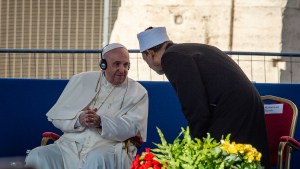
July 27: Opening of the giant trial of the London Affair
For some, it was the trial of the century that opened in the Vatican in the middle of the summer. In the dock, ten people, including Cardinal Angelo Becciu, an Italian who had held highest positions in the Vatican apparatus.
All the defendants would be involved in a sprawling affair, that of the London building, in reference to the purchase by the Vatican of a London building in 2013. An acquisition that turned into a fiasco and made the Holy See lose tens of millions of euros.
Through this complex trial – which is still stalling today – the Holy See wishes to demonstrate its ability to tackle corruption. It is therefore the credibility of the Vatican Justice and of Pope Francis’ reforms in this area that is also at stake.
July 16: Pope Francis drastically limits the celebration of Mass in Latin
Traditionis custodes. This is the name of the motu proprio abrogating that of Benedict XVI published in 2007, Summorum Pontificum. The latter facilitated the celebration of the Mass in the Extraordinary Form of the Roman Rite that was in use before the Second Vatican Council.
Pope Francis explained that he fears an instrumentalization of the 1962 Roman Missal that would show a rejection not only of the liturgical reform but also of the Second Vatican Council. Now, the celebration of Mass in the old form of the rite is extremely limited and depends on the discernment of the bishop and, in some cases, of Rome.
On February 11, 2022, the Pope issued a decree saying the Priestly Fraternity of St. Peter is outside the mandates of the change.
July 4: The Pope undergoes a major operation
At the age of 84, Pope Francis underwent colon surgery at the Gemelli Polyclinic in Rome. It was a major operation, as the Pontiff remained in the hospital for ten days. It is the first hospitalization of Pope Francis since his accession to the Throne of Peter in 2013.
Nearly two months after his release from Gemelli, he confided to a Spanish radio that he was “still alive,” brushing aside rumors of resignation. “I can eat everything. I still have the post-operative drugs, because the brain must register that it has 33 centimeters of intestine less” but “apart from that, I have a normal life, I lead a completely normal life,” he reassured.
July 1: Pope holds broad ecumenical summit on Lebanon
Nearly a year after the double explosion in the port of Beirut, the land of the Cedars continues to sink in what is one of the worst crises in its history. The Pope, who regularly says he prays for Lebanon, decided to gather the main leaders of the country’s Christian communities for a “day of reflection on the worrying situation of the country.”
The approach was above all spiritual. Nine Christian patriarchs came to gather near the tomb of Peter to pray with the Pope for “the gift of peace and stability.”
In early 2022, Archbishop Paul Richard Gallagher, Secretary for Relations with States in the Holy See’s Secretariat of State, said that Pope Francis wanted to visit Lebanon “soon.”
June 1: Vast reform of canon law to fight abuse and corruption
Initiated in 2007 by Pope Benedict XVI, the great reform of Book VI of Canon Law will have taken 14 years to complete. Sixty-three of the 89 canons that make up this book on penal sanctions in the Church have been modified. The major change aims to adapt Church law to today’s world and to rebalance the relationship between justice and mercy “which has sometimes been misinterpreted,” leading to a climate of “laxity,” particularly in a number of cases of sexual abuse committed by clerics on minors.
A specific article on sexual crimes committed by priests against minors was introduced – until then they were considered only as offences against “the special obligations” (Title V) proper to the priesthood, like the breaking of the vow of chastity.
